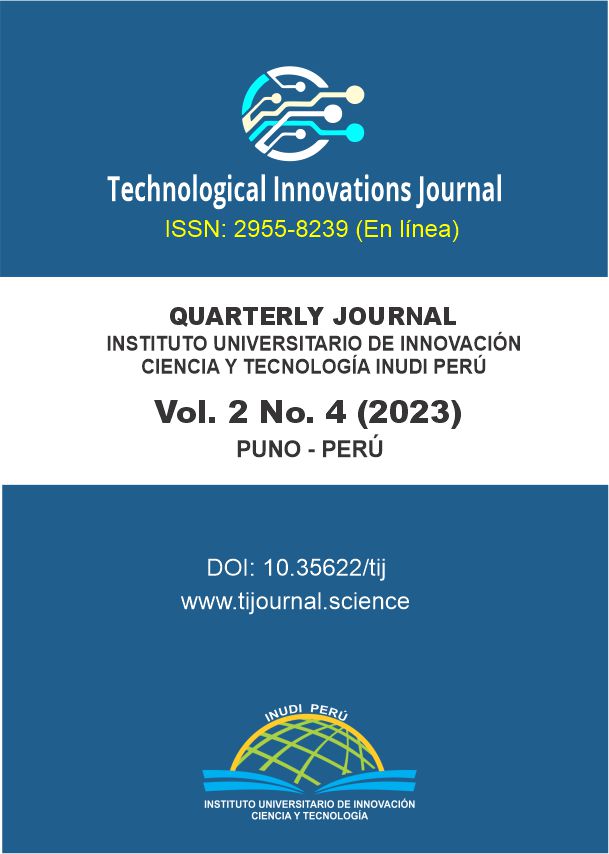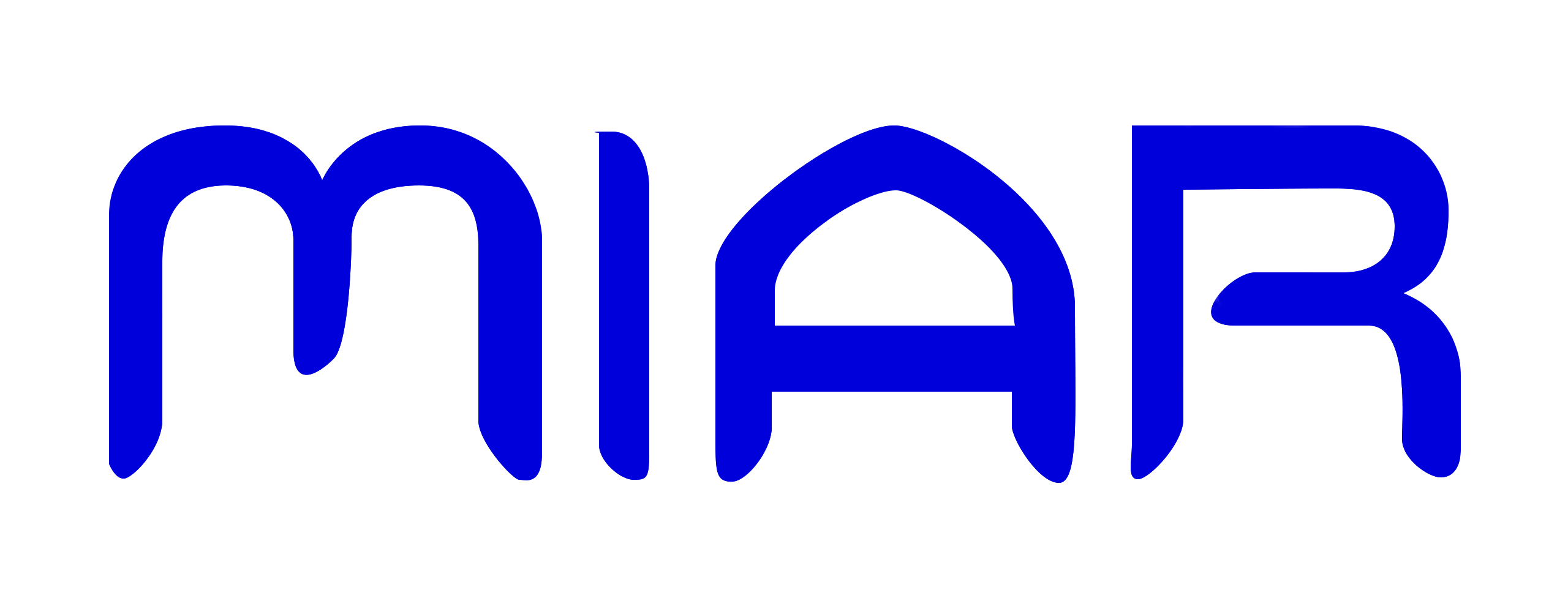Application of artificial intelligence for the development of academic papers in Peruvian universities: a current problem
DOI:
https://doi.org/10.35622/j.ti.2023.04.002Keywords:
application, artificial intelligence, jobs, research, university studentsAbstract
Artificial Intelligence (AI) has unfolded various dimensions since its inception. Its application in academic work has raised concerns in the academic sphere, as improper use by students can pose various risks to their future professional development. The objective was to identify how and how often students from four private universities are utilizing artificial intelligence programs for academic tasks. This was a descriptive, quantitative, non-experimental, and cross-sectional study. The population and sample consisted of students enrolled in research courses at four universities in Peru, totaling 173 students who were surveyed through an online questionnaire. The main findings revealed that 74% of the sample had used some form of AI for academic tasks. A majority of the participants (64,7%) were female, and a significant number were pursuing undergraduate degrees (42,8%) and graduation courses (42,2%). The most notable use of AI was the automation of tasks or academic work (66,4%), and the perceived major benefit of using AI was increased efficiency in content generation (39,8%). A high percentage of university students were found to incorporate AI in their academic work, with primary uses being automation, concept generation, assistance in writing and structuring, and the use of AI as a primary source of information.
References
Arías, J., Holgado, J., Tafur, T., Vásquez, M. (2022). Metodología de la investigación. El Método ARIAS para realizar un proyecto de tesis. Instituto Universitario de Innovación Ciencia y Tecnología Inudi Perú S.A.C DOI: https://doi.org/10.35622/inudi.b.016
Arif, T., Munaf, U., y Ul-Haque, I. (2023). The future of medical education and research: Is ChatGPT a blessing or blight in disguise? Medical Education Online, 28(1). https://doi.org/10.1080/10872981.2023.2181052 DOI: https://doi.org/10.1080/10872981.2023.2181052
Ayuso, D., y Gutiérrez, E. (2022). La Inteligencia Artificial como recurso educativo durante la formación inicial del profesorado, Revista Iberoamericana de Educación a Distancia, 25(2), 347-358. https://www.redalyc.org/journal/3314/331470794017/331470794017.pdf DOI: https://doi.org/10.5944/ried.25.2.32332
Boden, M. (2017). Inteligencia Artificial. Turne Publicaciones
Cabezas, E., Andrade, D., y Torres, J. (2018). Introducción a la metodología de la investigación científica. Comisión Editorial de la Universidad de las Fuerzas Armadas ESPE.
Calvo, L., y Ufarte, M. (2020). Percepción de docentes universitarios, estudiantes, responsables de innovación y periodistas sobre el uso de inteligencia artificial en periodismo. Profesional de la información, 29(1), 1-14. https://doi.org/10.3145/epi.2020.ene.09 DOI: https://doi.org/10.3145/epi.2020.ene.09
Coronel, J. (2022). Percepción de los estudiantes universitarios sobre el uso de la Inteligencia Artificial en los procesos de reclutamiento y selección de personal. Revista de análisis y difusión de perspectivas educativas y empresariales, 2(3), 35–44. https://doi.org/10.56216/radee012022jun.a03 DOI: https://doi.org/10.56216/radee012022jun.a03
Corvalán, J. (2018). Inteligencia artificial: retos, desafíos y oportunidades – Prometea: la primera inteligencia artificial de Latinoamérica al servicio de la Justicia. Revista de Investigações Constitucionais, 5(1), 295-316. https://www.scielo.br/j/rinc/a/gCXJghPTyFXt9rfxH6Pw99C/ DOI: https://doi.org/10.5380/rinc.v5i1.55334
Cotton, D., Cotton, P., y Shipway, J. (2023). Chatting and Cheating: Ensuring academic integrity in the era of ChatGPT. EdArXiv, 1–11. https://doi.org/10.35542/osf.io/mrz8h DOI: https://doi.org/10.35542/osf.io/mrz8h
Díaz, D. (2023). Plagio a la Inteligencia Artificial en estudiantes de bachillerato: un problema real. Revista Innova Educación, 5(2), 108–116. https://doi.org/10.35622/j.rie.2023.02.007 DOI: https://doi.org/10.35622/j.rie.2023.02.007
Eaton, E., Koenig, S., Schulz, C., Maurelli, F., Lee, J., Eckroth, J., Crowley, M., Freedman, R. G., Cardona, R. E., Machado, T., y Williams, T. (2018). Blue Sky Ideas in Artificial Intelligence Education from the EAAI 2017 New and Future AI Educator Program. AI Matter, 3(4), 23-31. https://doi.org/10.1145/3175502.3175509 DOI: https://doi.org/10.1145/3175502.3175509
Franganillo, J. (2023). La inteligencia artificial generativa y su impacto en la creación de contenidos mediáticos. Methaodos: Revista de ciencias sociales, 11(2), 1-17. https://doi.org/10.17502/mrcs.v11i2.710 DOI: https://doi.org/10.17502/mrcs.v11i2.710
Hernández, A., Ramos, R., Placencia, B., Indacochea, N., Quimis, A. y Moreno, L. (2018). Metodología de la investigación científica. 3 Ciencia - Editorial área de innovación y desarrollo Sociedad Limitada DOI: https://doi.org/10.17993/CcyLl.2018.15
Incio, F., Capuñay, D., Estela, R., Valles, M., Vergara, E., y Elera Gonzales, D. (2021). Inteligencia artificial en educación: una revisión de la literatura en revistas científicas internacionales. Apuntes universitarios, 12(1), 135–152. https://doi.org/10.17162/au.v12i1.974 DOI: https://doi.org/10.17162/au.v12i1.974
León, G. C., y Viña, S. M. (2017). La inteligencia artificial en la educación superior. Oportunidades y Amenazas. INNOVA Research Journal, 2(8), 412-422. https://doi.org/10.33890/innova.v2.n8.1.2017.399 DOI: https://doi.org/10.33890/innova.v2.n8.1.2017.399
López, E., y Fernández, J. (2020). Tecnologías de la Información y las Comunicaciones y diversidad funcional: conocimiento y formación del profesorado en Navarra. Revista Internacional de Investigación e Innovación Educativa, (14), 59–75. https://doi.org/10.46661/ijeri.4407 DOI: https://doi.org/10.46661/ijeri.4407
Martínez, M. (2023). Uso responsable de la inteligencia artificial en estudiantes universitarios: Una mirada recnoética. Boletín Redipe, 12(9), 172-8. https://revista.redipe.org/index.php/1/article/view/2008 DOI: https://doi.org/10.36260/rbr.v12i9.2008
Moreno, R. (2019). La llegada de la inteligencia artificial a la educación. Revista de investigación en tecnologías de la información, 7(14), 260–270. https://doi.org/10.36825/RITI.07.14.022 DOI: https://doi.org/10.36825/RITI.07.14.022
Naupay, A. (2023). Habilidades investigativas universitarias aplicadas a través de la inteligencia artificial, 2023. [Tesis de Maestría, Universidad César Vallejo]. https://repositorio.ucv.edu.pe/handle/20.500.12692/120556
Ñaupas, H., Mejía, E., Trujillo, I., Romero, H., Medina, W., Novoa, E. (2018). Metodología de la investigación total. Cuantitativa – Cualitativa y redacción de tesis. Ediciones de la U.
Padilla, A. L., Gámiz, V., y Romero, M. A. (2020). Evolución de la competencia digital docente del profesorado universitario: incidentes críticos a partir de relatos de vida. Educar, 56(1), 109-27. https://doi.org/10.5565/rev/educar.1088 DOI: https://doi.org/10.5565/rev/educar.1088
Pedraza, C., y Jarod, D. (2023). La inteligencia artificial en la sociedad: explorando su impacto actual y los desafíos futuros. [Tesis de Licenciatura, Universidad Politécnica de Madrid]. Repositorio Institucional. https://oa.upm.es/75068/
Perkins, M. (2023). Academic integrity considerations of AI Large Language Models in the post-pandemic era: ChatGPT and beyond. Journal of University Teaching and Learning Practice, 20(2). https://doi.org/10.53761/1.20.02.07 DOI: https://doi.org/10.53761/1.20.02.07
Rouhiainen, L. (2018). Inteligencia artificial 101 cosas que debes saber hoy sobre nuestro futuro. Alienta Editorial
Rudolph, J., Tan, S., & Tan, S. (2023). ChatGPT: Bullshit spewer or the end of traditional assessments in higher education? Journal of Applied Learning & Teaching, 6(1), 1–22. https://doi.org/10.37074/jalt.2023.6.1.9 DOI: https://doi.org/10.37074/jalt.2023.6.1.9
Sánchez, X., y Ascencio A. (2023). Realización del documental: "Y de repente... Inteligencia artificial" [Tesis de Licenciatura, Universidad de Lima]. https://hdl.handle.net/20.500.12724/18596
Published
Issue
Section
License
Copyright (c) 2024 Ambrocio Esteves (Autor/a)

This work is licensed under a Creative Commons Attribution 4.0 International License.











